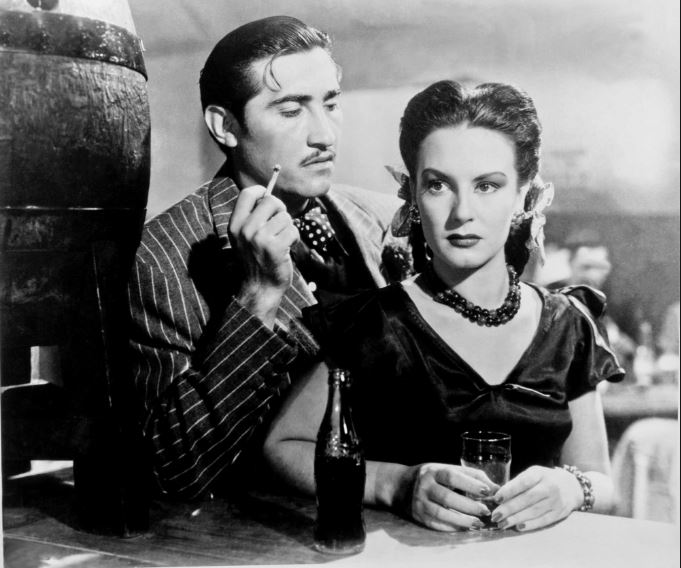Olympusat Restored Classic Screened at Salon Mexico: The Golden Age of Mexican Cinema

The smarter way to stay on top of broadcasting and cable industry. Sign up below
You are now subscribed
Your newsletter sign-up was successful
West Palm Beach, FL – July 02, 2019 –Víctimas del pecado(Victims of Sin), will be screened on Tuesday July 02 as part of program presented by the British Film Institute.
Masterfully directed by Emilio Fernández, who won the 1946 Cannes Film Festival Grand Prix award for Maria Candelaria, and flawlessly photographed like a classic film noir by Gabriel Figueroa, Víctimas del pecado (1951) is a sparkling example of the rumberas genre of films popular at the time—typically set in a cabaret and featuring Afro-Caribbean music. Ninón Sevilla delivers a kinetic performance as Violeta, a rhumba dancer at a red-light district nightclub in Mexico City who finds an infant in a garbage can and decides to raise him as her own. But when club owner Rodolfo (Rodolfo Acosta) learns about the child, a clash between him, Violeta and her lover Santiago (Tito Junco) ensues, ultimately ending in tragedy for all three.
Salon Mexico: The Golden Age of Mexican Cinema pays homage to the three and a half decades of prolific film production by what many consider to be the epicenter of Latin American cinema between 1933 and 1964. It was during this time that the Mexican industry gained international recognition based on the quality of its cinematic offering as well as the speed at which it could deliver reels of film to theater. In fact, it was not unheard of the Mexican studio system to produce over 100 films per year during the 1950s employing a sophisticated system of studios, talented directors and actors.
Sadly, many of these cultural gemstones are rapidly being lost to the ravages of time. Celluloid, when not properly stored, deteriorates due to environmental conditions and will rust, fade and ultimately disintegrate. Thankfully, Olympusat is fighting to preserve these historical works as quickly as possible by painstakingly restoring them frame by frame to their original splendor. Olympusat has over fifty professionals dedicated to fixing and preserving the catalog of classic Mexican cinema. To date, the company has restored and digitally transferred over 300 films for posterity to enjoy.
"I feel we are restoring history, and by replenishing history through these films, we contribute to the preservation of culture for new generations," said Tom Mohler, founder and CEO of Olympusat. Transferring films from the celluloid to the digital format allows for aesthetic improvements and diligent correction of discoloration and fading of each frame, he added.
Other films featured at Salon Mexico: The Golden Age of Mexican Cinema include:
Salón Mexico (1949), Maclovia (1948), Enamorada (1946), Macario (1960), En la palma de tu mano (1951) and La otra (1946), Distinto Amanecer (1943), Crepúsculo (1945), La Mujer del Puerto (1934), Dos Monjes (1934) and Aventurera (1950).
The smarter way to stay on top of broadcasting and cable industry. Sign up below
Salon Mexico: The Golden Age of Mexican Cinema is made possible by BFI with the support of the Morelia International Film Festival (FICM), the Cineteca Nacional, UNAM Film Library, the Televisa Foundation and the Mexico Embassy in the United Kingdom.
Víctimas del pecado and other digitally remastered movies from the Golden age of Mexican and Hispanic Cinema, can be viewed on Ultra Clásico, which features iconic classics and award-winning movies starting from the 1930s fully restored to their original glory in HD.
Ultra Clásico is owned and operated by Olympusat, Inc., and it’s currently available on Charter Spectrum, Hotwire Communications, Fios by Verizon, Liberty and VEMOX.
For more information on Ultra Clásico programming, please visit Olympusat.com and VEMOX.
Media Contact:
Jesús Piñango
Senior Director of News
561-249-5228
